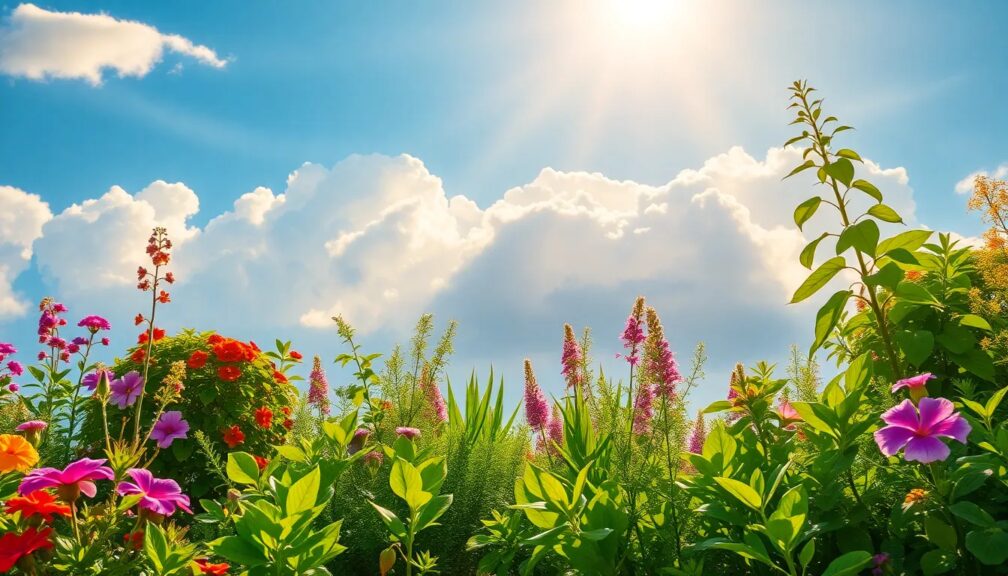Why does rainwater make plants grow better than tap water

Plants thrive when they receive the right kind of nourishment, and often, gardeners observe that plants seem to exhibit a more vibrant growth pattern when watered with rainwater as opposed to tap water. This phenomenon has puzzled many and has led to a discussion about the underlying reasons that make rainwater seemingly superior for plant health. In this article, we will delve into the scientific rationales that explain why rainwater is often considered the best hydration option for your greenery. From its natural composition to the absence of additives commonly found in municipal water supplies, we will explore the various factors that contribute to rainwater's edge in fostering lush and healthy plant growth. Whether you're a seasoned gardener or a curious plant enthusiast, understanding the benefits of rainwater can be a game-changer in how you approach the care of your plants.
Why is rainwater better for plants
Imagine unlocking the secret to a lusher garden and healthier plants. It's not just about the water; it's about the quality of the water. Rainwater is often touted as the gardener's secret weapon, and for good reason. Its unique properties can make a significant difference in plant health and yield. But why does rainwater hold such an esteemed place in the gardening world?
Firstly, rainwater is naturally soft. Unlike hard tap water, it doesn't contain the minerals that can lead to soil compaction and reduce oxygen availability to plant roots. Soft water promotes better root growth and nutrient absorption, both critical factors for plant vigor.
Another point to consider is the pH level of rainwater. Often, it is more acidic than tap water, which can help neutralize alkaline soils and make essential nutrients more accessible to plants. This pH-adjustment feature could be the missing link to reviving your garden.
But there's more – rainwater contains dissolved nitrogen, a vital nutrient for plant growth. When rain passes through the atmosphere, it collects nitrogen and brings this natural fertilizer straight to your plants, providing them with a nutritional boost that tap water simply can't match.
Have you ever noticed how plants seem to thrive after a rainstorm? It's not just your imagination. The structure of rainwater allows for better aeration of the soil, ensuring that roots receive ample oxygen – a key element often overlooked in plant care.
Moreover, rainwater is free of the chlorine and other chemicals commonly found in municipal water supplies. These additives can be harmful to the delicate microbiome in your soil, inhibiting the growth of beneficial microorganisms that help plants absorb nutrients and fend off diseases.
Before you go back to your gardening routine, consider this: the use of rainwater could elevate your gardening game, reduce your environmental footprint, and save on your water bill. Installing a rain barrel could be the gateway to harnessing this precious resource. So, are you ready to give your plants the gift of rainwater and watch your garden transform? The secret is out, and the power is now in your hands.
How long is rain water good for plants
The essence of rainwater's benefits for your plants is something every green-thumbed enthusiast yearns to understand. Picture this: your garden is not just a space in your yard; it is a living, breathing canvas, where each droplet of rainwater might just be the elixir that transforms your plants from ordinary to extraordinary.
But the burning question lingers: what is the shelf life of this precious resource? The answer may surprise you, as it is not as straightforward as one might think. While rainwater is often seen as a pure, ideal watering solution, its benefits depend on a multitude of factors.
Did you know that the storage method can dramatically impact the quality of rainwater? Stored rainwater might become a breeding ground for mosquitoes and algae if not preserved correctly, turning the life-giving fluid into a potentially harmful stew for your plants.
Furthermore, the chemical composition of rainwater can change over time. Discover the secrets to maintaining its purity and learn how to harness the power of pH levels to ensure your garden thrives.
Stay tuned as we delve into the scientific and practical tips that will guarantee your plants reap the maximum benefits from every drop of rain. Prepare to unlock a treasure trove of information that will leave your garden not just surviving, but flourishing beyond your wildest dreams. Your plants are whispering for that hydration and vitality only rainwater can provide – don't let them down.
Is rain water better than tap water to drink
Discover a hidden truth that could revolutionize your daily hydration habits. In the midst of our modern lifestyle, we often overlook the purest sources of life's most essential element: water. As we grapple with the taste and quality of our tap water, a natural alternative is often forgotten—rainwater. But the question lingers: could this clear gift from the skies be superior to what flows from our faucets?
Before you take your next sip of tap water, consider the tantalizing possibility that the answer might not just impact your taste buds, but also your health and the environment. Picture a world where every drop of rain is a potential glass of vitality. Imagine harnessing the pristine essence of a rain shower for your morning refreshment; it's an ancient practice that may hold modern-day benefits.
We are on the edge of rediscovering the virtues of rainwater. As you delve deeper into this intriguing debate, prepare to uncover the factors that make rainwater a compelling choice—the purity of the source, the absence of treatment chemicals, and the softness of the water itself. Each element beckons with the promise of untapped advantages for your palate and wellbeing.
But wait, before you set out your buckets, there's a twist. Not all rainwater is created equal. The environment from which it falls plays a crucial role. Urban landscapes might taint its perfection, while remote areas offer droplets like nature's own distilled beverage.
Is the allure of rainwater just a myth, or could it be the key to unlocking a healthier lifestyle? Stay with us as we explore the science, bust the myths, and give you the facts you need to make an informed decision. By the end of this journey, the way you think about your daily water intake could be forever changed.
Effect of rainwater on plants
Discover a secret that your garden has been whispering to you with every drop from the heavens. Unbeknownst to many, the way rain caresses the leaves, stems, and roots of your beloved plants is nothing short of a nourishing ballet, orchestrating growth, vitality, and even the very flavor of your future harvests.
First, let's delve into the chemistry of rainwater. Unlike its counterpart from the tap, rain is naturally soft water, free from the minerals that can accumulate in the soil and potentially harm plant roots. But dare to think beyond the absence of minerals; rainwater carries with it a magical ingredient from the atmosphere—nitrogen. This gift from the skies is a form of natural fertilization that can transform your garden.
As the droplets make their journey to the earth, they absorb carbon dioxide, creating a slightly acidic solution. This gentle acidity works wonders, making soil nutrients more soluble and easily accessible to your plants. It's a subtle dance of pH balance that can enhance nutrient uptake and promote robust growth.
But have you ever noticed the difference in your plants after a rainstorm? There's a reason they seem rejuvenated and more vibrant. Rain not only provides hydration but also cleanses the foliage, washing away dust, pollutants, and pests that cling to leaves and can hinder photosynthesis.
The impact of rainwater doesn't stop with the visible parts of the plant. Below the surface, a hidden world is at work. Rainwater infiltration encourages healthy root systems, promoting oxygen flow to the roots and stimulating beneficial microbial activity in the soil.
1. Chemistry and Nutrient Uptake
2. Gentle Acidity for Soil Balance
3. Natural Cleansing of Foliage
4. Enhanced Oxygenation and Microbial Activity
Imagine the untapped potential lying dormant in each raindrop, ready to boost your garden's health and beauty. Are you harnessing the full power of nature's elixir, or have you yet to unlock this secret ingredient that could elevate your gardening game to new heights?
Stay tuned to uncover more insights and tips that will not only change the way you view the humble raindrop but will also ensure that your thumb becomes greener than the envy of those who have yet to learn these secrets. Don't let your garden miss out on what could be the key to unlocking its fullest potential.
Does rainwater have nutrients for plants
The hidden treasures within a simple raindrop may surprise you. While many gardeners swear by the beneficial effects of rainwater on their plants, have you ever wondered what makes it so special? Beyond just hydration, rainwater carries with it a cocktail of elements that can invigorate your garden in ways that tap water simply cannot match.
Firstly, consider the purity of rainwater. Devoid of the minerals and chemicals found in groundwater, it is often hailed as the softest water option for your greenery. But it's not just what rainwater lacks that makes it intriguing—it's what it contains. Suspended within each droplet, there are trace nutrients essential for plant growth. Nitrogen, for instance, a key component of chlorophyll, comes down with the rain in a form that plants can readily absorb.
Moreover, rainwater has a neutral pH, which is a stark contrast to the variable pH levels in tap water due to treatment processes. This neutrality makes rainwater a perfect match for most plants, ensuring that they are not exposed to the stresses of pH fluctuations.
But that's not all. The way rainwater is delivered to plants—through a gentle, cleansing shower—helps to wash away harmful pollutants from leaves, enhancing photosynthesis and overall plant health. This natural irrigation system can also loosen soil, allowing roots to better access the air and nutrients they need to flourish.
Are you curious to unearth more about the life-giving essence of rainwater? The next time you see those clouds gathering, you may find yourself anticipating the nourishing impact they will have on your garden. The story of rainwater and its partnership with plants is a fascinating journey into the heart of nature's own growth formula. Stay tuned, and let the rain reveal its secrets as you witness the transformation of your garden.
Consejo final: If you're keen on promoting healthy plant growth, consider harvesting rainwater for your gardening needs. Rainwater is typically softer, more acidic, and contains fewer chemicals than tap water, which can lead to a more flourishing garden. Keep in mind, however, to ensure the safety and cleanliness of the collected rainwater, especially if you live in an area with high pollution levels. Wishing you thriving plants and joyful gardening!
 What are 3 disadvantages of hand watering
What are 3 disadvantages of hand watering What is the best tool to remove grass from yard
What is the best tool to remove grass from yard Why is forking a lawn bad
Why is forking a lawn bad How do I get rid of grass in my vegetable garden naturally
How do I get rid of grass in my vegetable garden naturally What is the best tool to trim small shrubs
What is the best tool to trim small shrubsIf you want to know more about similar articles like Why does rainwater make plants grow better than tap water you can visit category Gardening Tools.
Deja una respuesta